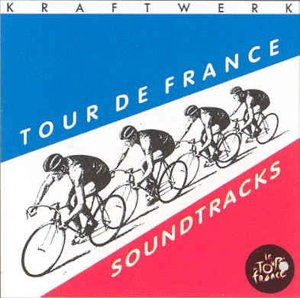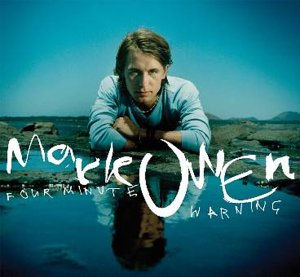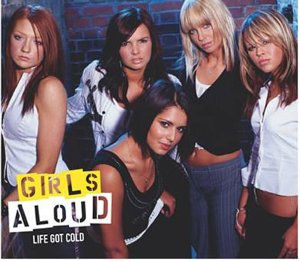Liam Carey reviews
V o l u m e # 1 4 1 3 A u g u s t 2 0 0 3
Pioneers of electronic pop, Kraftwerk quite rightly continue to be regarded as one of the most influential acts of all-time. Their singularly Germanic approach; aloof, enigmatic and clinical, fused with divine melody and extraordinarily prescient futuristic vision, made them an iconic figurehead for every subsequent generation of knob-twiddling, techno-fixated, synth-loving music makers. They virtually created the contemporary soundtrack of the last 20 or so years, but through their determined isolation from the music business and attendant media circus, Kraftwerk have always been viewed as outsiders.
At the height of Punk in 1977, they fashioned Trans-Europe Express; a sparkling celebration of travel and technology with a sleeve inspired by the Art Deco movement of the 1920s and 1930s. Sublime tunes wrought from motherboards and occasionally laced with emotionless, minimalistic Aryan vocals about Showroom Dummies and a Hall Of Mirrors.
Serendipity briefly occurred at the dawn of the Eighties, as the synthesizer was in-vogue and The Human League, O.M.D. and others directly inspired by Kraftwerk’s glacial soundscapes were lording it over the UK charts. A seminal 1978 nugget from The Man Machine, The Model, reached No.1 in 1982 in unusual circumstances, having been merely the B-side to a single from their 1981 album Computer World before its rekindled popularity forced EMI to flip the record several months into its lifespan. A spate of re-issues followed, some of them making the lower reaches of the Top 40, before the next new Kraftwerk material appeared in the late summer of 1983. A mooted album had just been shelved, but a one-off single – Tour De France – was released.
Since then, there has been very little in the way of activity from Ralph Hutter, Florian Schneider and their studiobound cohorts. 1986’s Electric Cafe barely registered with the public, and for the first time Kraftwerk appeared to have taken their collective eye off the ball. Allowing your work’s relevance to be rendered obsolete by the present is the curse of the pioneering futurist, and to all intents and purposes Kraftwerk have been treading water for more than two decades. Simply recycling themselves by tinkering indefinitely with their own established bleeps and clunks represents a baffling state of creative inertia. The Mix, from 1991, gently reworked some well-known Kraftwerk tracks to moderate commercial success, but as the only album to emerge in seventeen years it raised more questions than it answered by temporarily breaking their self-imposed exile. Nine years later, and another no-strings single – Expo 2000 – hardly allayed fears that their powers were on the wane.
At last, however, there is a brand new Kraftwerk album. Of sorts. To mark the centenary of France’s famous cycle race (and the 20th anniversary of the Tour De France single itself, one assumes), we have Tour De France Soundtracks. One of the tracks is the TDF original, the rest is approximately 50 minutes of unremarkable noodling devoid of anything so bold as an identifiable tune. All traces of personality have been processed out of the limited, robotic vocals, such as they are, something which earlier Kraftwerk masterpieces so classily avoided by leaving just enough expression intact. The music is equally bereft of variety; this is an album which the most basic of computers could come up with. Whatever might have happened to the muse which brought the world Neon Lights, Autobahn, Radioactivity, The Model and the rest before disappearing after 1983, it certainly didn’t manifest itself again here on Soundtracks. Closing the album with the mesmeric original version, as the endless monotony finally gives way to a wonderfully familiar sense of magic, just accentuates the disappointment at how one of the truly important acts in contemporary recording history can have sunk to this level of artistic redundancy.
In a dispiritingly barren summer release schedule, Four Minute Warning by ex-Take That star Mark Owen offers a much needed beacon of hope. The winner of last year’s Celebrity Big Brother previously made a bid for solo success at the tail end of 1996, just months after the boyband had called time on their career. While initial glory went to chief songsmith Gary Barlow, and then troubled outcast Robbie Williams, Owen enjoyed a brace of Top 10 hits (Child and Clementine) before dropping off the radar when the accompanying album Green Man, and third single I Am What I Am (DVDfever Ed: …which I actually liked), didn’t hit the same heights. Perhaps the well-liked, boyish singer with the weakest voice of the five (given centrestage on Take That’s 1993 Chrsitmas chart-topper Babe) just wasn’t cut out for stardom on his own. Being a thoroughly nice bloke with decent writing and performing ability isn’t always enough.
Yet, through his extra-curricular TV exploits which won him an even more widespread appeal, he’s having his second wind. On the strength of Four Minute Warning, this is definitely A Good Thing. Despite its end-of-the-world subject matter (harking back to 80s songs about impending nuclear doom like Ultravox’s Dancing With Tears In My Eyes, but don’t hold that against it) the track is based on solid virtues of a strong melody with crafted lyrics sung with a refreshing absence of affectation. Even his oft-mentioned singing is surprisingly purposeful, with a Sixties-esque quality that shuns all the fannying about worryingly beloved by the majority of today’s acts, male and female. As the Robbie bandwagon somehow rolls ever onward, regardless of an alarming drop in the quality of his music and his tiresome struggle with inner demons, it’s as well that a former comrade has returned to offer an alternative to the ego-tripping, supper-clubbing Karaoke King.
The best music on the horizon:
- GIRLS ALOUD – LIFE GOT COLD: In a breathtakingly idiotic move, the Girls’ record label have scrapped plans to issue Some Kind Of Miracle’s timeless pop as the third single, and instead opted for this whiny Wonderwall rip-off – with the apparent aid of fans themselves (cheers, then). Clearly, this was a last minute, unscripted switch as several new release listings continued to print Some Kind Of Miracle even when the video for Life Got Cold began airing on the Music TV stations. With the various Reality-TV pop acts all struggling – from the unexpected failure of Sinead Quinn’s album to the cruch-time releases imminent from David Sneddon and Gareth Gates, down to the dismal One True Voice – and the fact that not even the vibrant Knack/Spencer Davis Group-inspired No Good Advice could give them a No.1, Girls Aloud need all the help they can get to avoid the Hear’Say syndrome. Choosing probably the worst track on their rather fabulous album for the vital third single is not the most obvious manoeuvre. Some Kind Of Miracle may, of course, eventually be single number four, but by then it could be too late. D’oh!
- DIDO – WHITE FLAG: Ubiquitous during 2001 to the point of saturation, Dido has wisely waited a reasonable period before reappearing with that “difficult” second album, Life For Rent, out on September 29th. Having said that, its introductory single could be deemed business very much as usuual. A bit of Here With Me mixed with a sprinkling of Thank You, the chorus is admittedly strong if melodically unoriginal and, given her pedigree as well as the paucity of memorable songs at the moment, should ensure a strong chart return.
Page Content copyright © Liam Carey, 2003.
Email Liam Carey
Reviewer of movies, videogames and music since 1994. Aortic valve operation survivor from the same year. Running DVDfever.co.uk since 2000. Nobel Peace Prize winner 2021.




